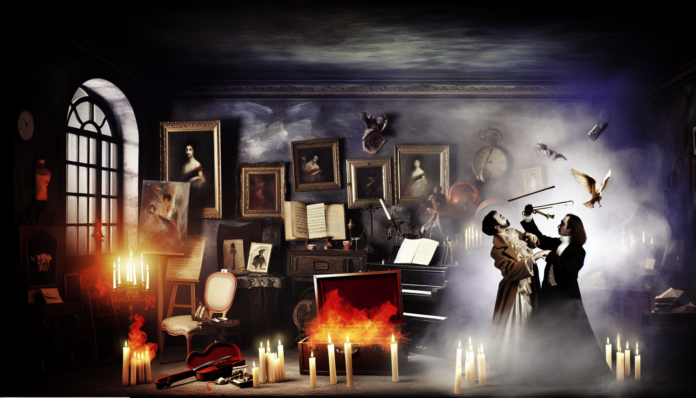Introduction
Elvis Presley, the King of Rock and Roll, is often celebrated for his groundbreaking music and magnetic charisma. However, his personal life was riddled with controversies, particularly involving his relationships, that captivated and scandalized the American public in the 20th century. Specifically, his scandalous romance with 14-year-old Priscilla Beaulieu raised eyebrows across an entire generation, highlighting shifting social norms and culminating in debates about age, consent, and celebrity culture.
During the mid-1950s, America was steeped in conservative values and traditional family structures, compressing open discussions about sexuality into hushed tones. As a cultural icon, Presley’s choices served as both a reflection and a challenge to these norms, making his relationships a significant societal issue.
The Scandal
The relationship between Elvis and Priscilla began when she moved to America with her family while her father was stationed in Germany. They met at a party in 1959, and what followed was a controversial romance that captured the headlines. Although they wouldn’t marry until 1967, their courtship was filled with scandal and secrecy, considering Priscilla’s young age.
The details surrounding their relationship involve a mix of fascination and critique. Elvis reportedly would not allow Priscilla to engage in typical teenage activities, enforcing strict rules and shaping her into his ideal partner. Their romance led to heated debates, particularly because Priscilla was just 14 when they began dating, a fact that stirred outrage.
Prominent figures of the time weighed in. For instance, Life magazine published a piece in 1960 questioning the implications of their significant age difference. Elvis defended their relationship, saying, “I know what I want,” promoting a narrative that their love transcended societal norms.
Moral and Cultural Analysis
Society’s reaction to Elvis and Priscilla’s relationship was a mixture of intrigue and repulsion. While fans celebrated Elvis as a romantic hero, many disapproved of his liaison with a minor. Hollywood, glamorized by its tough masculine personas, often obscured the moral complexities of their age-gap romance and minimized the conversation about consent and power dynamics.
The consequences for Elvis were minimal in his time. His fame eclipsed the scandal, allowing him to walk a line between public admiration and private criticism. However, modern audiences would likely react quite differently. Today, Priscilla’s age and the dynamics of coercion would lead to heightened scrutiny and a call for accountability.
In a contemporary context, we would likely see conversations shaped by the #MeToo movement, advocating for equality and highlighting issues of consent. The ethical discourse surrounding their relationship would not only interrogate Elvis’s role as a cultural influencer but also bring Priscilla’s voice and autonomy into sharper focus.
As societal values continue to evolve, Elvis’s story serves as a poignant lens through which we can examine our understanding of celebrity culture, morality, and relationships.

